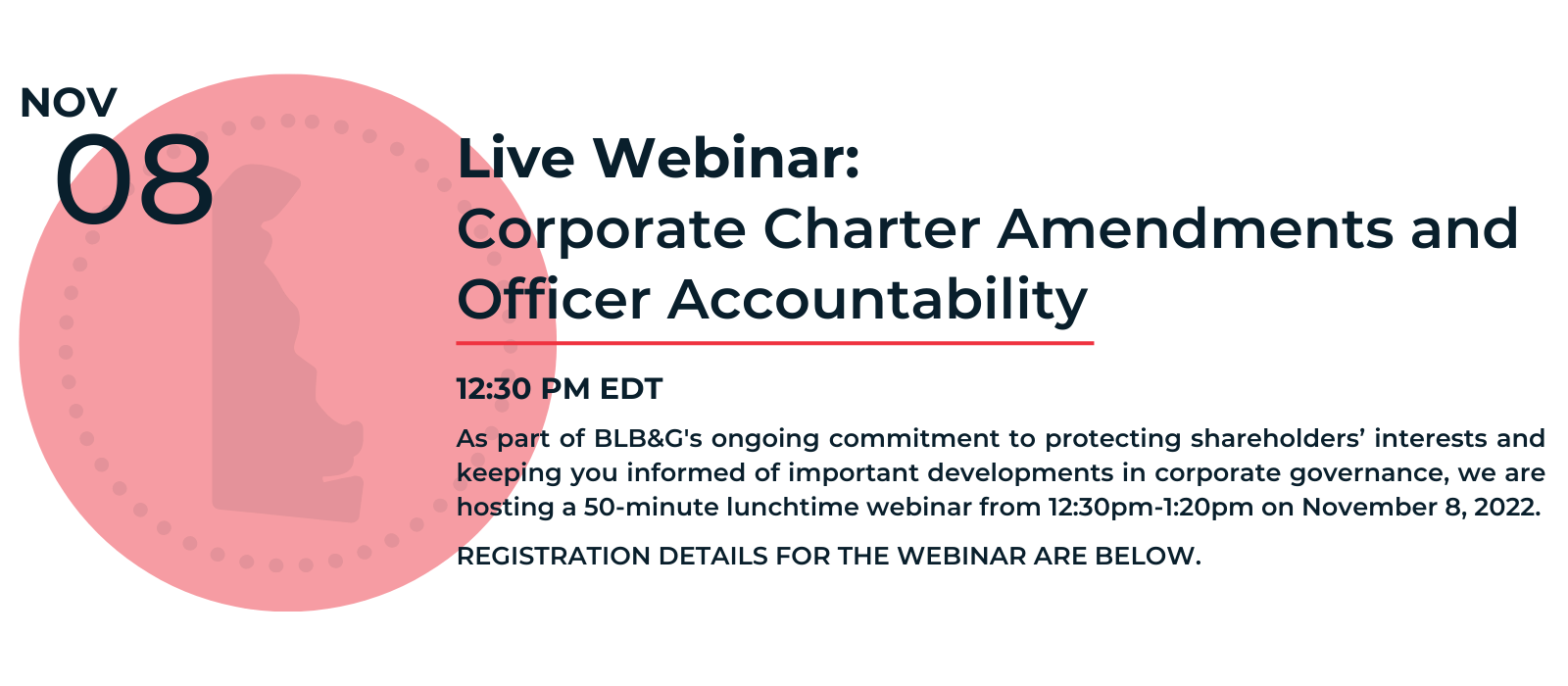November 8, 2022
You are encouraged to forward this invite to others within your organization who may find the program relevant or of interest.
When:
Tuesday, November 8, 2022 | 12:30 pm - 1:20 pm EDT
Overview:
The balance of corporate power among investors, on the one hand, and corporate directors and insiders, on the other, is always shifting. This webinar, which will include panelists from across the corporate governance spectrum, will address recent developments that should cause concern for the investing community. It will also educate investors on how they can use their voting and litigation policies to protect that balance of power.
First, this summer, the Delaware legislature passed an amendment that, for the first time, permits corporations to immunize corporate officers from liability for breaches of the duty of care. Immunizing outside directors, as 8 Del. C. §102(b)(7) has done for nearly 40 years, makes sense in part because outside directors are and should be expected to rely on the diligence and care taken by corporate officers in doing their jobs. The recent statutory amendment extends that immunity to officers in the transactional context, which some believe undermines the corporate hierarchy by protecting officers who act in a grossly negligent or even reckless manner at the most crucial moment facing most corporations, without providing any corresponding benefit to investors. However, as will be discussed, investors have tools to protect themselves from the harmful outcome of excusing officers who perform their jobs recklessly, like adopting a policy to vote against any proposed charter amendments put up for a stockholder vote.
Second, passive and active investors alike have a strong interest in ensuring that stockholders retain the meaningful ability to conduct proxy fights and take similar actions to hold underperforming or malfeasant boards and managers accountable through the election process. We will discuss the impact of various corporate strategies on the stockholder franchise, including the recent weaponization of director nomination bylaws by Massimo Corporation (MASI).
Third, individual and institutional investors alike are sensitive to federal inside trading laws. Investors – including pension systems and hedge funds – should be aware of certain recent Delaware Chancery Court rulings that could be interpreted to create trading restrictions affecting representative plaintiffs that potentially go beyond the federal securities laws. With a unified voice from the investing community on these issues, the Chancery Court will hopefully clarify its law so as to protect the rights of the best situated investors to lead important representative corporate governance litigation.
Panelists:

